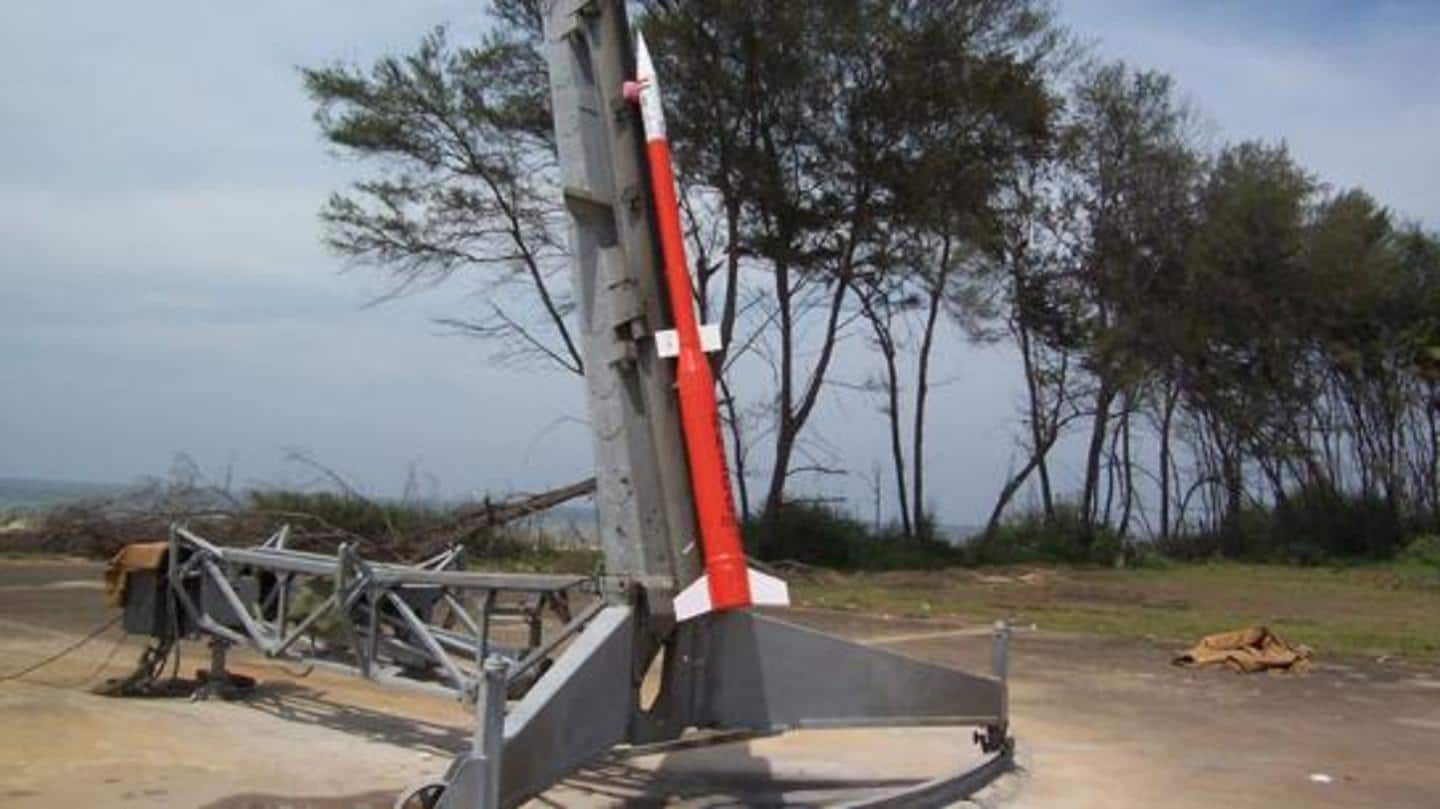
ISRO launches RH-560 sounding rocket. What exactly does it do?
What's the story
The Indian Space Research Organisation (ISRO) launched the RH-560 sounding rocket on Friday. The endeavor is intended to study attitudinal variations in neutral winds and plasma dynamics. In layman's terms, the sounding rocket probes the ionosphere, which is partially-ionized atmospheric layer containing plasma, for data that provides insight on atmospheric winds. This is critical for a range of meteorological and scientific applications.
Crash course
What are sounding rockets?
Sounding rockets trace their etymology to the nautical concept of sounding, or taking measurements. They do exactly that by launching scientific experiments to gather data from space. These rockets are generally between one and four stages and employ simple solid propellant-based engines to reduce cost and complexity. They propel payloads between 50 and 1,300 km for a modest 5 to 20 minutes in space.
Sounding rocket
RH-560's 470 km range makes it ideal to study ionosphere
One of ISRO's more substantial two-stage sounding rockets, the RH-560 was launched from the Satish Dhawan Space Centre (SDSC), Sriharikota Range (SHAR). The RH-560 is a Rohini series sounding rocket that uses the French Stromboli engine derived technology to reach a maximum altitude of 470 km. This makes it perfect to study the ionosphere for plasma activity for insight on atmospheric winds.
Rocket science
ISRO's sounding rocket can carry 100 kg scientific payload
ISRO began launching indigenously-made sounding rockets from 1965. This laid the foundation and gathered data that paved the way for its space launch program. The RH-560 in its Mk II avatar represents the best sounding rocket technology in ISRO's repertoire, with the exception of the Advanced Technology Vehicle (ATV) assisting its sophisticated Scramjet project. The RH-560 can carry 100 kg payloads to the ionosphere.
Bilateral research
Meanwhile, Japanese space agency JAXA deepens space cooperation with ISRO
The launch comes on the heels of the March 11 bilateral meeting between ISRO and Japan Aerospace Exploration Agency (JAXA). The endeavor marks the cooperation between two space bodies for exchanging intelligence on space situational awareness and professional exchange program. Japan and India have already established an ongoing cooperation in Earth observation, satellite navigation, and lunar research.